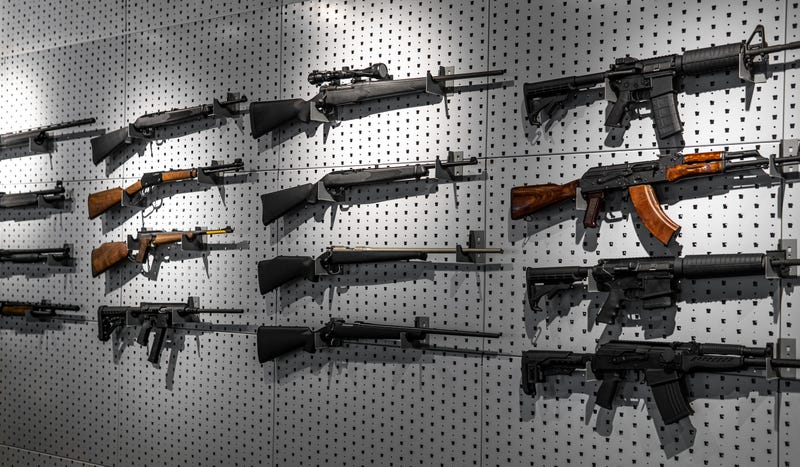
The state of Illinois faces yet another lawsuit challenging its new ban on assault weapons, the latest from a major pro-gun organization.
The National Rifle Association has joined the National Sports Shooting Foundation in filing a federal lawsuit trying to overturn the state's new assault weapons law -- which it calls "unconstitutional" and a "blatant violation" of constitutional rights.
"The NRA will not stand by while activist politicians pass unconstitutional laws that do nothing to promote public safety," the NRA's Jason Ouimet told Fox News Digital. "We sued the state of Illinois because this new law is a blatant violation of Americans' Second Amendment rights."
The Protect Illinois Communities Act, which was signed into law by Governor J.B. Pritzker this month, bans semiautomatic assault weapons and .50-caliber guns from being manufactured or sold in the state. The law also bans spare parts for those guns, handgun magazines that can hold more than 15 rounds of ammunition and long gun magazines of more than 10 rounds.
John Weber, NRA's Illinois director, said the Supreme Court has already decided the 2nd Amendment protects the right to own weapons that are commonly used by people for self-defense, competition and recreation. Instead of arresting, prosecuting and punishing criminals who break the law, Weber said the governor is focusing on those who haven't broken any laws.
"Gov. Pritzker's decision to ignore the court and sign this bill demonstrates a blatant disregard for the rule of law and a willful ignorance of the nightmare he and his anti-gun allies in the statehouse have created with their soft-on-crime policies," John Weber, NRA Illinois state director, said in a statement.
Governor Pritzker said he's confident the courts will uphold the new law.
"The Protect Illinois Communities Act takes weapons of war and mass destruction off the street while allowing law-abiding gun owners to retain their collections," Pritzker said in a statement. "I remain confident that the courts will uphold the constitutionality of Illinois' law, which aligns with the eight other states with similar laws and was written in collaboration with lawmakers, advocates, and legal experts."


